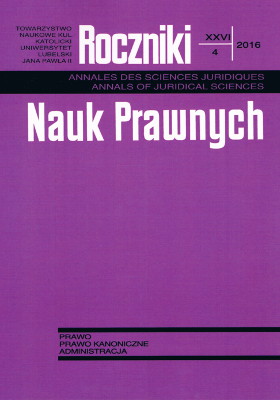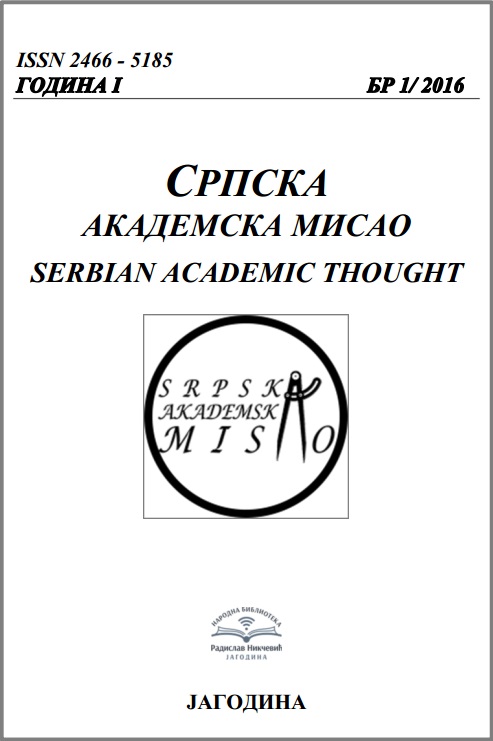Археолошка истраживања спроведена од стране Народног музеја Крушевац у оквиру пројекта Мултидисциплинарна истраживања Мојсињско-Послонског комплекса (2009-2015.)
Author(s): Ljubiša Vasiljević / Language(s): Serbian
/ Issue: 1/2016
Keywords: archaeological research; National Museum Kruševac; Mojsinje and Poslon Complex; Ukosa; Kućište; Bedem; Branik; Prehistory; Antique; Middle Ages.
Within the multidisciplinary research project of the Mojsinje-Poslon complex, supported by the Ministry of Culture and Information of the Republic of Serbia, the National museum in Kruševac has conducted archaeological research of the four sites – Branik in Dedina near Krusevac, Bedem in Maskare, Municipality of Varvarin and Ukosa and Kućište in Grad Stalać, Municipality of Ćićevac. The researches have shown that the locality Branik in Dedina had been populated in the Neolithic period, which means the period of Starčevo culture. The discovered movable archaeological material also differs from other contemporaneous finding sites by the representation of the records. The most common are the records of flint tools and tools made of polished stone. The presence of a small number of ceramics fragments is a confirmation of the hypothesis that the locality Branik is not an example of a classical Neolithic settlement, but that the role of this place was primarily that of a workshop, which means that it was a center intended for the manufacturing of flint and stone tools. The archaeological locality Bedem extends at the periphery part of the village Maskare, on about 15 kilometers northern from Kruševac and opposite of the medieval town Stalać. The results of the archaeological excavations show that this is a multi-layer locality. Besides the Byzantine material, there was also found a material form the prehistoric period from the Eneolithic (Baden cultural group), Middle Bronze Age (Vatin cultural group), the Early Iron Age – Iron Age I (Brnjica cultural group) and the Late Iron Age. It was determined that the dimensions of the Early Byzantine fortification are The 130 х 130 meters. The locality belongs to the rare type of the Early Byzantine fortifications built in the lowland. Within the fortification, the particularly outstanding is the record of the triple-naved basilica whose dimensions, length and width, exceed 23 meters, making it one of the most monumental on the territory of the entire Serbia. That this space has also served as a temporary refuge in the following centuries evidences a record of the residential building, area of about 25 squaremeters, within which there was a pearlike furnacewith brick paving. The residential building is dated in the 10th century. The sites of Ukosa and Kućište are situated in the area of the village of Grad Stalać, some 2 kilometres to the south of the famous mediaeval fort. The results gained after archaeological research showed that the site at Ukosa represents a multi level site, inhabited in the Early Iron Age, more precisely in the 8th century B.C. It is most likely that back then a smaller fortification was built at this place. Ukosa was used as a refugium until the Roman conquest, at the beginning of the New Era. There have also been finds that give testimony to a Celtic presence at this place. The strategic advantages of Ukosa were used again in Antiquity, during the turbulent times of the 3rd and 4th centuries. A hoard of 115 bronze Roman coins from the 4th-5th century gives testimony to the Roman presence. According to the area it covered, Ukosa represents one of the largest Late Antique/Early Byzantine fortifications in this part of Serbia. The fortification measures almost 300 meters in length, while its width varies between 80 and 100 meters. The fortification lines follow the natural terrain configuration. The smaller part of the fortification, which was discovered at the western side of the site, was positioned in a logically chosen position, where the slope becomes very steep. It was constructed of bigger, carved stones secured with mortar. The building technique applied to the walls was also applied to buildings discovered at the western part of the site, where most of the excavations have so far taken place. Numerous finds provide evidence of life in Ukosa in the past. It was not only a strategic point, but also an important economic point. Archaeological finds give testimony to the habitation of Ukosa in the period from the 7th to the 11th century. During that period, Serbian, Bulgarian and Byzantine forces fought over this area. At the southern and south-western part of the site of Ukosa there is a necropolis. Apart from skeletal burials, placed in the Christian manner and orientated west-east, there was a skeleton orientated south-north, with a huge stone placed upon its chest. The second necropolis is situated at the site of Kućište, positioned on a slope next to Ukosa.
More...


